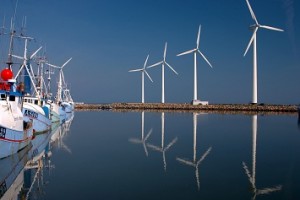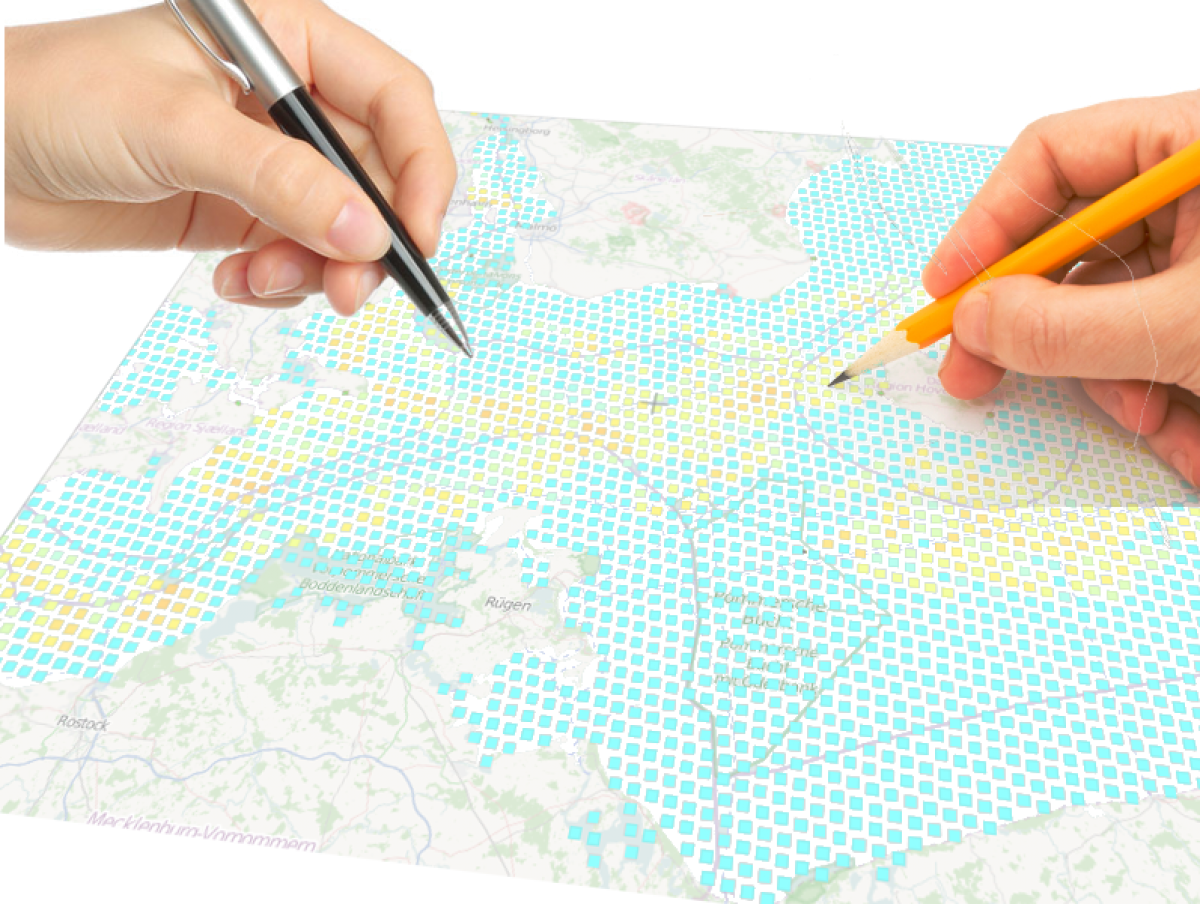 We recently presented a communication to the IIFET conference (International Institute of Fisheries Economics and Trade) about an impact assessment we are conducting on the large-scale western Baltic Sea fisheries:
We recently presented a communication to the IIFET conference (International Institute of Fisheries Economics and Trade) about an impact assessment we are conducting on the large-scale western Baltic Sea fisheries:
“Supporting bio-economic evaluation of spatial planning constraining fishing activities: be quantitative, spatially-explicit, vessel-oriented, dynamic stochastic, and coupled to fish populations”
Maritime spatial planning and fishery management are likely to generate extra costs for the fisheries by constraining fishermen activity with conservation areas and new utilization of the sea such as offshore windmill parks. Growing concerns for greener and energy efficient fisheries are also likely to alter existing fishing patterns already varying from fishery to fishery and from vessel to vessel.
In this context, impact assessment of new spatial plans should support quantitative analyses that take into account individual vessel behavior, local practices and tradeoffs in conflict resolutions. We used a vessel-oriented decision-support tool (the DISPLACE model) for combining stochastic spatial fishing activities to harvested resource dynamics over time in scenario projections.
The impact assessment computes time series of economic and stock status indicators by considering the activity of Danish, Swedish and German vessels (>12m) in the international western Baltic Sea, together with the underlying size-based distribution dynamics of sprat, herring, and cod. The outcomes of alternative solutions in spatial effort allocation and displacement are exemplified by evaluating the fishermen capacity to adapt to spatial plans under various constraints.
The DISPLACE model serves as a benchmark tool for management strategy evaluations which are able to capture short-term economic behavioral reactions from individual tactical decision-making. This study is conducted in association with a number of EU research projects and the development of a spatial explicit bio-economic model that covers both many stocks and fisheries has the potential to form near future developments in ICES and EU within the context of maritime spatial planning.

Francois Bastardie is a DTU-Aqua Senior Scientist and method developer in the Section of Ecosystem-based Marine Management with a Ph.D. in Biological Science. He has been involved in several national and EU Funded projects developing expertise in spatial fisheries and fisheries databases. He has a strong background in modeling fishing and the bio-economic dynamics including developing agent-based models for combining marine ecosystems and natural resource extraction models, fisheries economics in a mixed fisheries perspective. He has an experience of 10 years leading to more than 35 peer-reviewed publications by conducting scientific-based fisheries management evaluation with scenario-testing evaluation and simulations, including fleet dynamics and consequences on the economy of fisheries, population dynamics and fish stock assessment. He was in charge of the evaluation of some of the EU long-term fisheries management plans with consequent participation to ICES and STECF working groups, including giving advise from regional to international policy makers.

Author: Francois Bastardie
Francois Bastardie is a DTU-Aqua Senior Scientist and method developer in the Section of Ecosystem-based Marine Management with a Ph.D. in Biological Science. He has been involved in several national and EU Funded projects developing expertise in spatial fisheries and fisheries databases. He has a strong background in modeling fishing and the bio-economic dynamics including developing agent-based models for combining marine ecosystems and natural resource extraction models, fisheries economics in a mixed fisheries perspective. He has an experience of 10 years leading to more than 35 peer-reviewed publications by conducting scientific-based fisheries management evaluation with scenario-testing evaluation and simulations, including fleet dynamics and consequences on the economy of fisheries, population dynamics and fish stock assessment. He was in charge of the evaluation of some of the EU long-term fisheries management plans with consequent participation to ICES and STECF working groups, including giving advise from regional to international policy makers.
View all posts by Francois Bastardie
 We recently presented a communication to the IIFET conference (International Institute of Fisheries Economics and Trade) about an impact assessment we are conducting on the large-scale western Baltic Sea fisheries:
We recently presented a communication to the IIFET conference (International Institute of Fisheries Economics and Trade) about an impact assessment we are conducting on the large-scale western Baltic Sea fisheries:
